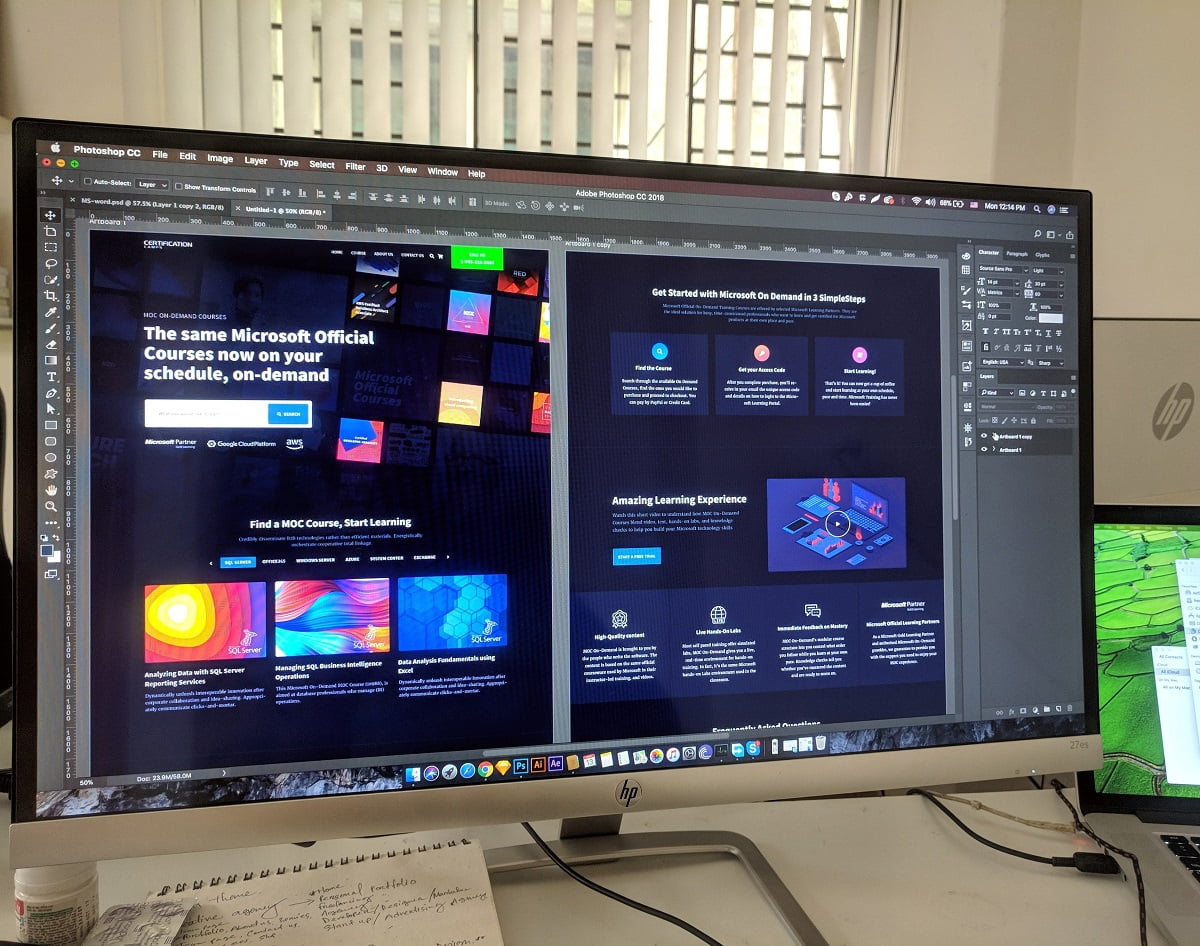Physical Address
304 North Cardinal St.
Dorchester Center, MA 02124
Physical Address
304 North Cardinal St.
Dorchester Center, MA 02124

Blog Introduction: If you’re a college student or recent graduate interested in data science, you may be wondering how to get your foot in the door. One of the best ways to break into the field is through an internship. Data science internships can give you the opportunity to learn from experienced professionals, gain valuable industry experience, and make important connections.
But landing a data science internship can be tough. In this blog post, we’ll tell you everything you need to know about applying for data science internships, from where to look for openings to what to include in your application. By the end, you’ll be armed with all the knowledge you need to secure a great data science internship—and set yourself up for a successful career in data science or data analytics
Data science internships are positions that allow students and recent graduates to gain experience in the field of data science. These internships typically last for a set period of time—usually one or two semesters—and involve working on projects alongside experienced data scientists.
Data science internships can be found in a variety of industries, from tech companies to financial institutions to healthcare organizations. No matter where you intern, you’ll likely be working with large data sets, using statistical methods to analyze them, and developing insights that can help inform business decisions.
The majority of data science internships are with technology companies, although there are also opportunities with consulting firms, financial institutions, and other businesses that deal heavily in data. No matter where you end up, your day-to-day tasks as a data science intern will likely include some combination of the following:
The exact nature of your work will depend on the specific internship you land, as well as the size and scope of the company you’re interning for. For example, if you’re interning at a small startup, you may be asked to wear many hats and handle a variety of tasks. But if you’re interning at a large corporation, you’ll likely be assigned to work on one specific project or area of focus.

Data science internships offer a number of benefits for those looking to enter the field. Here are a few reasons to consider interning in data science:
One of the best ways to learn about data science is to actually get your hands dirty and work with data yourself. Data science internships will give you the opportunity to do just that.
Data science internships provide the opportunity to learn from and work alongside experienced data scientists. You’ll be able to pick their brains, learn about the challenges they face in their work, and get insights into the industry as a whole.
Data science is a rapidly growing field, and it can be difficult to break in without knowing anyone in the industry. Data science internships can help you make connections with professionals who can offer advice, introduce you to new opportunities, and provide recommendations down the line.
In addition to the specific skills you’ll learn, data science internships will also give you a taste of what it’s like to work in the industry. This experience can be helpful in deciding if data science is the right career path for you, and it will also make you a more attractive job candidate down the line.

Data science is a relatively new field, and as such, there are a number of different career paths you can take. Here Here are a a few of the most most popular career career paths for data scientists:
Data analysts collect and analyze data to help organizations make better decisions. They use statistical techniques to find trends and patterns, and they may also develop predictive models to forecast future outcomes.
Data engineers design, build and maintain the systems that collect and store data. They work with large data sets and need to be experts in databases and computer science.
Machine learning engineers develop algorithms that allow computers to learn from data. They design and train models, tune parameters and evaluate
Most data science internships will require at least some experience working with data. If you don’t have any experience, you may still be able to land an internship if you have other relevant skills, such as programming or statistics. But even if you don’t have any direct experience, there are a few things you can do to make yourself a more attractive candidate, such as taking online courses or participating in data science competitions.
In addition to specific skills, data science internships will also require soft skills like communication and problem-solving. As a data scientist, you’ll need to explain your findings to non-technical staff and stakeholders, so you must be able to communicate complex ideas simply. You should also be comfortable working independently and be able to take initiatives on projects.
There are a number of ways to find data science internships. Here are a few of the best places to start your search:
There are many online job boards that list data science internships, such as Indeed, Glassdoor, and LinkedIn. These websites are a great place to start your search because they allow you to filter positions by location, keyword, and other criteria.
Another great way to find data science internships is to visit the websites of companies that interest you and see if they have any internship openings. Many companies post theirinternship opportunities on their website, so this is a great way to find positions that may not be listed elsewhere.
If you’re currently enrolled in a university, your school’s career center is a great resource for finding internships. The staff at your career center can help you identify data science internships that are a good fit for your skills and interests.
There are many professional organizations for data scientists, such as the Data Science Association and the American Statistical Association. These organizations often have job boards or career resources that can help you find data science internships.
One of the best ways to find a data science internship is through personal connections. If you know anyone who works in data science, they may be able to put you in touch with someone at their company who is hiring interns. Or, if you have a connection at a company you’re interested in, they may be able to help you get your foot in the door.
Once you’ve found a few data science internships that you’re interested in, it’s time to start applying. Here are a few tips to help you prepare a strong application:
Make sure to tailor your resume to each position you apply for. Highlight the skills and experience that are most relevant to the internship you’re interested in. For example, if you’re applying for a data analyst internship, make sure to showcase your experience working with data.
In addition to your resume, you’ll also need to submit a cover letter with your application. This is your opportunity to sell yourself and explain why you’re the best candidate for the internship. Be sure to customize your cover letter for each position you apply for.
Once you’ve submitted your application, the next step is to prepare for the interview. This is your chance to show off your skills and demonstrate why you’re the right person for the internship. Be sure to brush up on your technical skills and practice communicating complex ideas in a simple way.
Once you’ve landed the internship, it’s time to negotiate your salary. Be sure to research the going rate for data science internships in your area so you have a good idea of what to expect. Start high and be prepared to compromise so you can get the best possible salary. With these tips, you’ll be well on your way to landing the perfect data science internship.
Just remember to be patient, stay positive, and keep applying until you find the right opportunity. Good luck!

There are a few different places you can look for data science internship openings. Start by checking out job boards like Indeed and Monster, as well as professional networking sites like LinkedIn. You can also visit the websites of companies you’re interested in and see if they have any internship postings listed. Finally, don’t forget to ask your friends, family, and mentors if they know of any openings or can put you in touch with someone who might be able to help you land an interview.
Another great way to find data science internships is through your school’s career center. Many colleges and universities have relationships with employers in various industries and can help connect students with internships and entry-level jobs. Be sure to take advantage of this resource—it could be invaluable in your search for a data science internship.
1. Start with your network. Talk to your family and friends, professors, and previous employers. See if they know of any openings or can put in a good word for you. You’d be surprised how many opportunities are available if you just ask around.
2. Next, take to the internet. There are dozens of websites and job boards that list internships, so spend some time browsing through them. Make sure to tailor your resume and cover letter to each position you apply for.
3. Finally, don’t forget about your personal brand. In today’s day and age, potential employers will likely Google your name before they even meet you. So make sure your online presence is professional and squeaky clean. These days, first impressions really do count for everything.
These are just a few examples of excellent data science internships. If you’re interested in pursuing a career in data science, be sure to check out these programs and see if you qualify.
There are a few different job boards you can use to find data science internships. Here are some of the best:
The application process for data science internships will vary depending on the company you’re applying to, but there are a few things you can expect in general. For starters, most companies will require you to submit a resume and cover letter. Many will also have you fill out an online application, which will likely include questions about your educational background, work experience, and skills.
Some companies may also require you to take a skills test or complete a project as part of the application process. This is especially common for technical positions, as employers want to make sure you have the necessary skills for the job. If you’re asked to complete a project, be sure to take your time and do your best work—after all, this is your chance to show off what you’re capable of.
Once you’ve submitted your application, the next step is usually an interview. This may be a phone screen with a recruiter or a more in-depth interview with a member of the hiring team. Either way, be prepared to answer questions about your experience, skills, and why you’re interested in the role.
If all goes well, the next step will be an offer. At this point, it’s up to you to decide whether or not to accept. Be sure to take your time and weigh all of your options before making a decision. Once you’ve made up your mind, it’s time to start your data science internship and begin your journey into the world of big data.
Some companies may also require you to take a skills test or complete a project as part of
Once you’ve found a few potential openings, it’s time to start working on your application. When applying for data science internships (or any position, for that matter), there are a few things you should always include:
applications stand out, so make sure yours is error-free and includes all of the necessary information. err on the side of over-preparedness rather than under-preparedness when applying for data science internships—it could make all the difference.
When it comes to your resume, there are a few things you should keep in mind as you’re tailoring it to data science internships. First, make sure to highlight any relevant skills and experience you have—even if it’s from a previous internship or job that wasn’t directly related to data science. Employers want to see that you have the ability to learn new things and solve problems, so don’t be afraid to show off your transferable skills.
Second, keep it concise. Hiring managers only spend a few seconds looking at each resume, so you want to make sure yours is clear and to the point. Include only the most relevant information and leave out anything that isn’t absolutely necessary.
Finally, don’t forget to proofread! Typos and grammar errors will only make your application look bad, so take the time to carefully review your resume before you submit it. Remember, attention to detail is an important skill for any data scientist.
Education
B.S. in Data Science, XYZ University
Relevant Coursework: Machine Learning, Data mining, Statistical Methods, Programming
Skills
R, Python, SQL, Tableau, Hadoop, Hive
Work Experience
Data Analyst Internship, ABC Company
June-August 20xx
* Conducted analysis on customer behavior data to improve retention rates
* Wrote SQL queries to extract data from databases
* Used Excel and Tableau to create visualizations of findings
Marketing Internship, XYZ Company
May-August 20xx
* Developed social media strategy and created content for XYZ Company’s blog
* Conducted market research to identify target demographics
* Wrote copy for email marketing campaigns
Projects
Customer Segmentation Analysis
* Used machine learning algorithms to segment customers and identify trends
* Created visualizations to communicate findings to non-technical stakeholders
Movie Recommendation Engine
* Developed a movie recommendation engine using the Collaborative Filtering algorithm
* Implemented the engine in Python and integrated it with the IMDB API
Lead Scoring Model
* Built a logistic regression model to predict which leads are most likely to convert
* Evaluated model performance using precision-recall metrics
Awards & Certifications
* Data Science Certificate, XYZ University
* Dean’s List, XYZ University
Through your resume and other application materials, you want to show employers that you have the skills and experience they’re looking for. But you also want to demonstrate that you’re a well-rounded candidate who would be a good fit for their company. Data science internships are highly competitive, so it’s important to make your application stand out.
One way to do this is to include relevant coursework and/or certifications on your resume. If you have any relevant skills or experience, make sure to highlight them prominently. And if you have any awards or accolades, feel free to list them as well.
Remember, employers are looking for candidates who are both technically qualified and a good fit for their company culture. So in addition to showcasing your skills and experience, be sure to emphasize anything that makes you unique.

Now that you’ve landed an interview for a data science internship, it’s time to start preparing. The good news is that internships tend to be less competitive than full-time jobs, so you may not have to do as much interviewing.
But that doesn’t mean you can slack off—you’ll still need to impress the hiring manager in order to get the job. Here are a few tips to help you nail your data science internship interview:
Before the interview, take some time to research the company and their data science needs. This will not only help you prepare for questions, but it will also show the hiring manager that you’re truly interested in the position.
The interview is your chance to show off your skills and experience, so be prepared to talk about them in detail. Be ready to discuss specific projects you’ve worked on and challenges you’ve faced. The more specific you can be, the better.
Asking questions shows that you’re interested in the position and the company. So during the interview, be sure to ask about the company’s data science needs and how you can help meet them.
Data science is a competitive field, so it’s important to stand out from the crowd. The best way to do this is to be yourself—let your personality shine through and be genuine in your responses.
After the interview, be sure to follow up with a thank-you note or email. This is a courteous gesture that will show the hiring manager that you’re still interested in the position.
With these tips in mind, you should be well on your way to landing a data science internship. Just remember to be prepared, be yourself, and follow up after the interview. Good luck!
While compensation varies depending on the company and location, Glassdoor reports that the average base pay for data science interns is $85,000 per year. Bonuses and other forms of compensation can vary widely, so be sure to ask about salary and benefits during your interview process.
You’ve landed the perfect data science internship—now it’s time to start thinking about how to turn it into a full-time job.
With these steps in mind, you should be well on your way to converting your internship into a full-time job. Just remember to take advantage of the opportunity, start planning for your future, and keep your options open. Good luck!
Data Science Internships are opportunities to learn from experienced professionals, gain valuable industry experience, and make important connections. For young professionals, fresh graduates and university students, Internships are so important. You can also find more information about finding the right internship abroad here
There are a few things you can do to make your data science internship application stand out. First, include relevant coursework and/or certifications on your resume. If you have any relevant skills or experience, make sure to highlight them prominently. And if you have any awards or accolades, feel free to list them.
Remember, employers, are looking for candidates who are both technically qualified and a good fit for their company culture. So in addition to showcasing your skills and experience, be sure to emphasize anything that makes you unique.
There are a few things you can do to prepare for your data science internship interview. First, research the company and their data science needs. This will help you prepare for questions about the role and the company.
Next, be prepared to talk about your skills and experience in detail. The more specific you can be, the better. And finally, be sure to ask questions about the company and the role. This will show that you’re truly interested in the position.
Most companies have a business casual dress code, so it’s generally best to err on the side of caution and dress formally for your interview. That said, if you know the company has a relaxed dress code, it’s probably okay to dress more casually.
If in doubt, it’s always best to err on the side of caution and dress formally. This will show that you’re taking the interview seriously and that you’re professional.
What are some common data science internship interview questions?
Some common data science internship interview questions include:
– Tell me about your background in data science.
– What projects have you worked on?
– Can you walk me through a few examples of your work?
– What tools and technologies are you familiar with?
– What do you think is the most important skill for a data scientist?
– Why are you interested in this particular company/role?
– Do you have any questions for me?
Remember, the goal of the interview is to assess your technical skills and qualifications. So be prepared to talk about your background in data science, your projects, and your skills in detail. And if you can, try to include examples of your work to illustrate your points.
There are many great companies offering data science internships, but some stand out more than others. A few of the best companies for data science internships include Facebook, Google, Amazon, and Microsoft. These companies are not only leaders in the tech industry, but they also offer competitive compensation and great benefits.
Some common data science internship interview questions include: